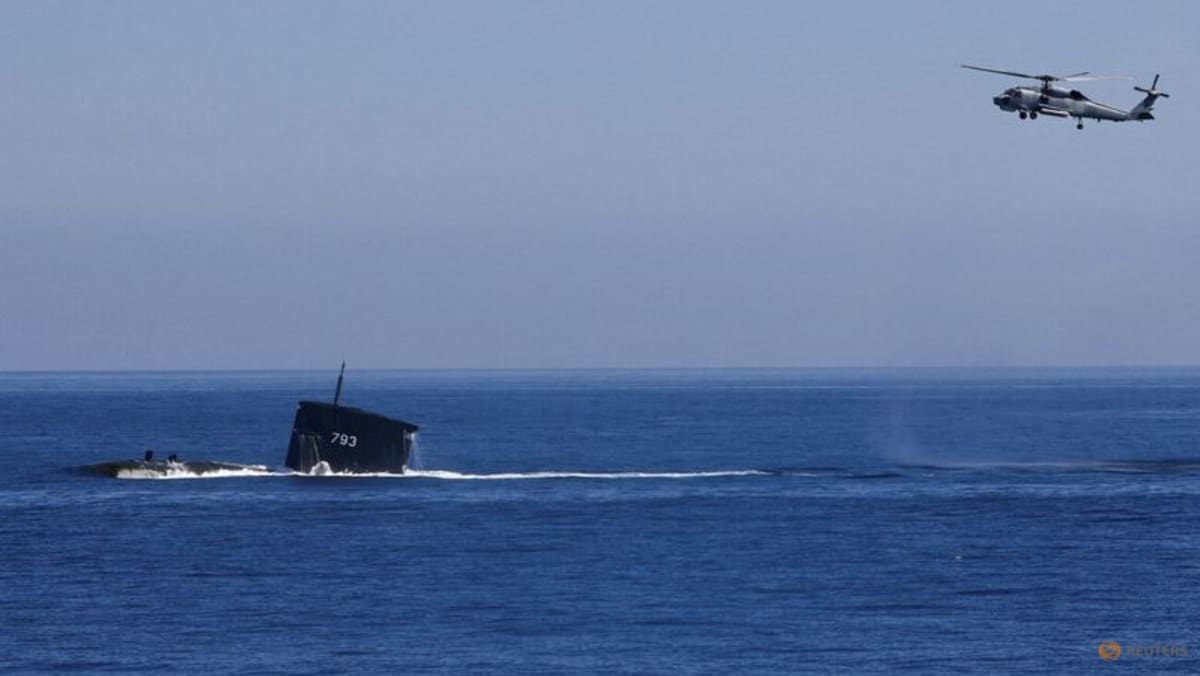UK approves increased submarine-related exports to Taiwan, risking angering China
The increase in licences granted reflects greater demand from Taiwan, two government officials said on condition of anonymity due to the sensitivity of the issue.
Two lawmakers with knowledge of the exports and two former officials said the approvals reflected Britain’s increased willingness to support Taiwan. One of the lawmakers, who also spoke on the condition of anonymity, said authorising the export licences amounted to giving a “green light” to better equip Taiwan.
The data is from the Export Control Organisation, which is responsible for export licensing and sits within the UK Department for International Trade. It shows the government authorised 25 export licences to Taiwan during the first nine months of 2022 under the categories “components for submarines” and “technology for submarines”.
The data does not disclose which companies received the authorisation or detail what specific equipment it covers.
One licence type, called ML9, covers “vessels of war, special naval equipment, accessories, components, and other surface vessels”, according to Britain’s list of strategic military items that require export authorisation.
Another license type, ML22, includes technology that is required for the development, production, operation, installation, maintenance, repair of goods or software.
The British government on Monday (Mar 13) announced a boost to defence spending as it unveiled an update to its defence, security and foreign policy priorities, setting out how it plans to “tackle new threats” from China and Russia.
HEIGHTENED TENSIONS
Military tensions between Beijing and Taipei are at their highest in decades. Taiwan, about 161km south east from the Chinese coast, has said it is building a fleet of submarines to build up their naval defences. Taiwan has for decades been unable to buy conventional submarines from other countries because of their concerns of angering China.
Taiwan’s democratically-elected government strongly rejects China’s sovereignty claims, saying only the island’s people can decide their future.
As Reuters previously reported, an array of foreign submarine-technology vendors, with the approval of their governments, have been aiding the program.
In response to a request for comment about the submarine-related exports from Britain, Taiwan’s defence ministry said in a statement that its ship-building programme was “a major national policy, and the navy has promoted various projects in a pragmatic way under it”.
“We hope that all walks of life will continue to give their support, to jointly maintain the security and peace of the Taiwan Strait,” the ministry said.
Taipei aims to test its first prototype by September and deliver the first of the planned eight vessels by 2025.
Britain’s granting of submarine-related licences began to tick up after Taiwan announced it planned to build the submarine fleet in 2017.
Britain approved the export of £87 million worth of submarine components and technology to Taiwan in 2020, up from £31,415 in 2017 and none in 2016, according to the licensing data. The value of such licences approved in 2021 dipped to just under £9 million.
UK “TILT” TO INDO-PACIFIC
Britain’s Integrated Review, a document laying out the country’s defence, security and foreign policy priorities that was published in March 2021, specified a “tilt” to the Indo-Pacific but did not mention Taiwan.
Russia’s invasion of Ukraine last year has raised questions in Britain and elsewhere in the West about other possible future flashpoints around the world.
Britain’s defence minister, Ben Wallace, told Reuters last month that the West’s actions in support of Kyiv was a signal to other countries that grabbing land does not pay off. “This conflict is important because the world is watching whether the West will stand up for its values of freedom, democracy, liberal societies and the rule of law,” he said.
Western lawmakers and other officials have been stepping up their visits to Taiwan, despite Beijing’s objections. That included one in November by Britain’s then minister of state for trade, Greg Hands. “We urge the British side to stop any form of official exchanges with Taiwan and stop sending wrong signals to separatist forces for Taiwan independence,” Chinese Foreign Ministry spokesman Zhao Lijian said at the time.
Tobias Ellwood, head of the UK parliament’s defence committee and a member in Britain’s governing Conservative Party who visited Taiwan in December, told Reuters the British government had to be careful about what detail it publicly provides about the equipment covered by the export licences.
“An announcement of the specific nature of these exports risks revealing sensitive information on Taiwan’s defensive capabilities and some of the UK government’s caution in discussing these exports is valid,” Ellwood said.
One of the former British officials said: “Every decision around Taiwan is made very deliberately and usually cautiously.” Asked about the decision to approve the increase in export licences, the official said: “You just don’t do something like this without thinking through the implications very carefully.”
For all the latest world News Click Here

